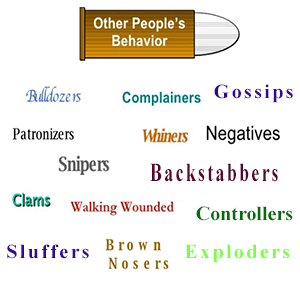Module 5: Creating positive learning environments
OBJECTIVES
- To understand the importance of creating a positive learning environment
- To reflect upon your role as a positive role model for your profession and organisation
A positive working environment is essential to effective learning. If staff provide a welcoming environment and have a positive cheerful attitude, the learner will feel accepted and therefore may integrate into the ward well, making the clinical placement a much more enjoyable experience for everyone. It is important for clinical supervisors / preceptors to:
- Learn the student’s name and ensure it is placed on the allocation list so that everyone knows they are part of the team
- Introduce the student to staff and ensure they receive an appropriate orientation
Clinical environments provide myriad opportunities for learning. To the experienced clinician, these may not be obvious, but to a learner, the opportunities to expand knowledge are abundant. It is however essential that the connections between theory and practice are realised, and that part of the role/function of the clinical supervisor / preceptor is to recognise and facilitate these opportunities.
 ACTIVITY: Read the Centre for Research on Learning and Teaching article by Thomas Schwenk titled "Clinical Teaching" (opens in a new window).
ACTIVITY: Read the Centre for Research on Learning and Teaching article by Thomas Schwenk titled "Clinical Teaching" (opens in a new window).
REFLECTIVE EXERCISE:
Schwenk discusses the transition process from unconscious incompetence to unconscious competence. Can you recall an example of when you made this transition when performing a certain skill, for example, venepuncture?
Can you recall who assisted you in this process and what assisted and hindered you in meeting competence? Describe this below.
As a clinical supervisor / preceptor, you are an important role model for both your profession and organisation. Students will imitate the behaviour that you exhibit and the professionalism that you display. Showing respect for students, your colleagues, management, patients, family… everyone is essential to maintaining positive working relationships.
Can you remember your very first day in a new workplace? How you felt? How people reacted to you and how that forged the way that relationship grew?
For students, entering the clinical environment may be a daunting experience. Fear of the unknown and lack of familiarity with the culture of the workplace may lead to a student feeling anxious and doubting their own capacity to learn. Clinical supervisors / preceptors provide assistance at this time to enable students to learn and achieve while undertaking their clinical placement. There are many different personalities in any workplace but the only personality you can change is your own. The clinical supervisor / preceptor relationship needs to be supported by clear objectives, expectations and guidelines can help design and deliver a preceptorship program which is likely to bring about more consistency, standardized training and positive outcomes for both preceptor and student (Valizadeh, Borimnejad, Rahmani, Gholizadeh, & Shahbazi, 2016).


